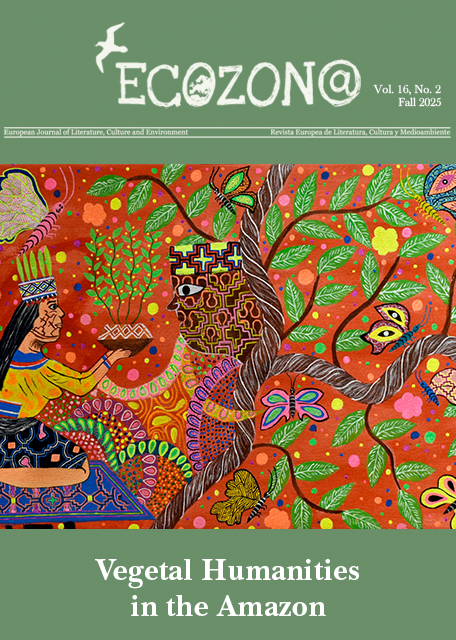Among Forests, Wetlands and Animals: Ecocriticism in the Baltics
DOI:
https://doi.org/10.37536/ECOZONA.2020.11.2.3498Schlagworte:
The Baltics, ecocriticism, environmental history, animal studies, biosemiotics, environmental humanitiesAbstract
Estonia, Latvia and Lithuania often tend to be grouped together under the label of ’the Baltic countries’, yet they constitute a region characterised by a diversity which also manifests itself in the field of academic research. Still, it may be possible to detect some common elements in the ecocriticism-related activities that have been taking place in these states during the past couple of decades. The article maps the salient tendencies in the environmental humanities (including ecocriticism) of the region that recently gained an institutionalised platform in the form of the Baltic Conferences on the Environmental Humanities and Social Sciences (BALTEHUMS) that were started in 2018. A survey is given of the three countries’ most significant events and publications that have boasted an ecocritical component, ecocriticism’s institutional representation and inclusion of ecocritical issues in university syllabuses and theory textbooks, as well as some pertinent topics and sub-fields on which the scholars in these countries are currently working. Among these, various aspects of the connections of literature and the ecosystems of the forest (trees) and the mire can be noticed; while also animal studies, literary urban studies, bio- and ecosemiotics and environmental history appear to have entered a fruitful dialogue with ecocritical scholarship currently conducted in the Baltics.
Downloads
Downloads
Veröffentlicht
Ausgabe
Rubrik
Lizenz
Authors who publish with this journal agree to the following terms:
a) Authors retain copyright and grant the journal right of first publication with the work simultaneously licensed under a Creative Commons Attribution License that allows others to share the work with an acknowledgement of the work's authorship and initial publication in this journal (CC BY-NC for articles and CC BY-NC-ND for creative work, unless author requests otherwise.
b) Authors are able to enter into separate, additional contractual arrangements for the non-exclusive distribution of the journal's published version of the work (e.g., post it to an institutional repository or publish it in a book), with an acknowledgement of its initial publication in this journal.
c) Authors are permitted and encouraged to post their work online (e.g., in institutional repositories or on their website) prior to and during the submission process, as it can lead to productive exchanges, as well as earlier and greater citation of published work (See The Effect of Open Access).










